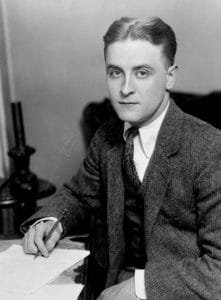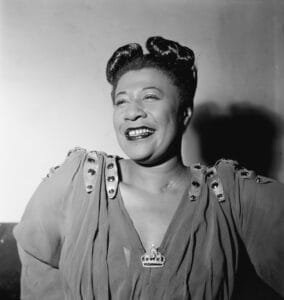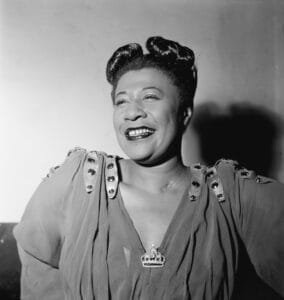Have you ever wondered what it was about Ella Fitzgerald that made her such a pivotal figure in the world of jazz? To fully grasp the essence of this legendary artist, it’s necessary to delve deeper than her discography and accolades. As you read on, we’ll explore the life and legacy of Ella Fitzgerald in a way that not only tells her story but also brings her contributions to jazz and the world at large into sharper focus.
Exploring the Life and Legacy of Ella Fitzgerald


The Early Years: A Humble Beginning
Ella Jane Fitzgerald’s journey began in Newport News, Virginia, on April 25, 1917. Coming from a modest background, her early years were filled with challenges. By the time she was a teenager, she had already experienced the loss of a parent and was living in rough neighborhoods, a far cry from the glamorous life she would eventually lead. Yet, it was during these formative years that her love for music began to take root.
The Apollo Theater Contest
Everything changed for Fitzgerald in 1934 when she won the opportunity to perform at the Apollo Theater’s Amateur Night. With the spotlight on her, she opted to sing rather than dance, a pivotal decision that would set the course of her career. Her rendition of “The Object of My Affection” earned her first place and caught the eye of bandleader Chick Webb.
Scaling the Heights: Joining Chick Webb’s Orchestra
In 1935, Ella Fitzgerald joined Chick Webb’s band, where she quickly became the star attraction. At the tender age of 17, she was already making waves in the jazz world. Together, they produced hits like “A-Tisket, A-Tasket,” a playful tune that became one of the best-selling records of the era.
Becoming the First Lady of Song
After Webb’s untimely death in 1939, Fitzgerald took over the band, now renamed Ella Fitzgerald and Her Famous Orchestra. This was a bold move for a young woman in a male-dominated industry, but it showcased her determination and leadership.

The Rise of Be Bop: A New Chapter
By the mid-1940s, jazz was evolving with the advent of Bebop, a more complex and fast-paced style. Fitzgerald easily adapted, leveraging her vocal dexterity and impeccable timing. Her collaborations with Dizzy Gillespie and others propelled her sound into uncharted territories.
The Songbook Series: A Masterclass in Versatility
Fitzgerald’s Songbook series was transformative, both for her career and for the world of jazz. Between 1956 and 1964, she recorded interpretations of the works of great composers like Cole Porter, Duke Ellington, and George Gershwin. These recordings were a testament to her vocal range, adaptability, and unparalleled musicality.
Personal Trials: Triumph Over Adversity
Despite her professional successes, Fitzgerald faced numerous personal challenges. Racial discrimination was a constant hurdle, and she battled health issues later in life. Yet, her resilience shone through, and she continued to perform and record tirelessly.
Philanthropic Endeavors: Giving Back
Beyond her musical achievements, Fitzgerald was committed to philanthropy. She established the Ella Fitzgerald Charitable Foundation, which provides support to various organizations. Whether it was funding educational programs or supporting medical research, her generosity extended far beyond the stage.
Legacy: An Enduring Influence
Today, Ella Fitzgerald’s legacy is preserved not just in her recordings but also in the influence she has on contemporary artists. Singers like Diana Krall and Natalie Cole have cited her as an inspiration, and her work continues to be celebrated and studied.
Awards and Honors
Her list of accolades is extensive, featuring 13 Grammy Awards and the Presidential Medal of Freedom. These honors are a testament to her impact on both music and society.
Table: Notable Awards Received by Ella Fitzgerald
| Year | Award |
|---|---|
| 1958 | First Grammy Award |
| 1967 | National Medal of Arts |
| 1987 | NAACP Image Award |
| 1992 | Presidential Medal of Freedom |
| 1997 | Grammy Lifetime Achievement Award |
Conclusion: The Everlasting Charm of Ella Fitzgerald
Ella Fitzgerald enchanted the world with her voice, her grace, and her indomitable spirit. Her life serves as a compelling narrative of triumph over adversity and her contributions to jazz are monumental. The next time you listen to one of her songs, take a moment to appreciate not just the melody, but the legacy of a woman who changed the landscape of music forever.
In the end, what makes Ella Fitzgerald unforgettable is not just her music, but her ethos. She epitomized what it means to be a true artist, continually evolving and pushing the boundaries, while remaining deeply connected to her roots. Wouldn’t you agree that the First Lady of Song leaves a legacy that will resonate for generations to come?
Meta Description:
Explore the life and legacy of Ella Fitzgerald, a jazz icon who redefined the genre. Learn about her early years, rise to fame, challenges, and lasting impact on music and society.


